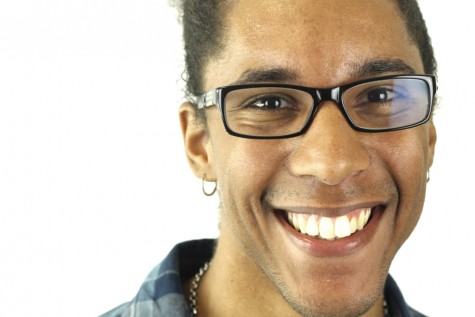Language barriers broken through words of diversity, inclusion
March 3, 2015
Richard Jones was in the process of buying a home when he encountered a situation that people who are heterosexual do not often have to go through.
When Jones was purchasing a home with his partner, they could not be listed as such because it was not in the system, so they went from being partners in person, to “roommates” on paper.
Jones, who is communication studies professor, presented on the discourse of heteronormative practices along with Linda Scholz, also a communication studies professor, during a workshop called “Speaking the Language of Diversity and Inclusion” Monday evening.
This discussion was also part of the Making Excellence Inclusive initiative to help diversify and bring an inclusive environment and dialogue to Eastern’s campus.
A heteronormative practice is the perception of heterosexism in mainstream being seen as the norm while ignoring practices or lifestyles identified with people who are LGBT, according to the presentation.
“It’s kind of like the coming-out process all over again,” Jones said.
Jones said a way to combat situations like this is to never assume. He said an example of this was when word of he and his partner buying a home spread around his job, the assumption was that Jones’ partner was buying a home with his wife and not another man.
“Apparently I’m the wife,” Jones said.
Those assumptions exemplify what Jones and Scholz classify as the dominant and non-dominant groups in society.
Those who enjoy status in the dominant group are able to have more cultural and socializing power, as well as getting to set the status quo for what is perceived as “normal.”
People who operate under the social constructs of the non-dominant group are less privileged both economically and socially than others.
Scholz used the example of racial assumptions, mentioning how more police are at social gatherings for African-Americans on campus because of the notion that they are more violent.
Racial assumptions and how they impact people are what lead into Scholz mention the notion of “whiteness” and white privilege.
“White experiences are the ones that are centralized,” Scholz said.
White identity is universally seen as the standard that produces a “color blind” logic as well as discriminatory hiring.
Scholz said when a white faculty or staff member walks around the Eastern community, they have to navigate differently than those who are African-American.
However, that does not mean white people cannot challenge and will not speak on issues dealing with racism, nor does that mean African-Americans cannot perpetuate racism and whiteness.
The workshop also mentioned several other languages dealing with diversity and inclusion.
Jones said one recent popular term is misogyny, which is the hatred of women or an act of slut shaming. He said it is one of the issues that happens jokingly between people, but also casually ignored.
Roberto Hodge can be reached at 581-2812 or [email protected].

















































